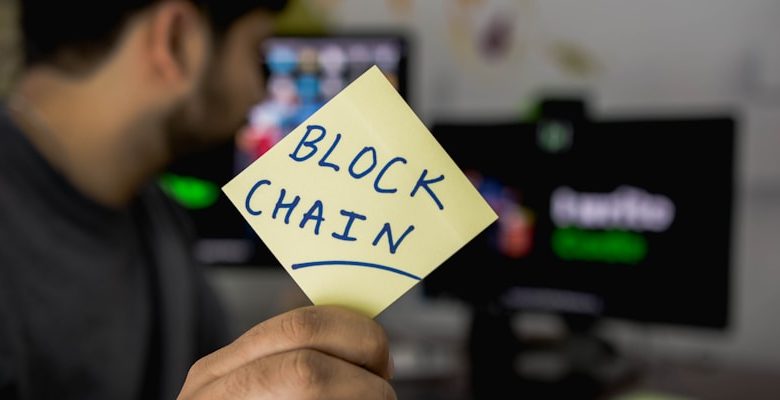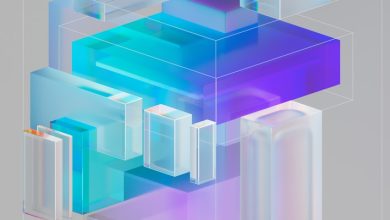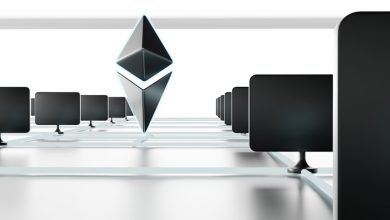The Future of Blockchain Governance: DAOs and Beyond

- Understanding Decentralized Autonomous Organizations (DAOs)
- The Evolution of Governance in Blockchain Technology
- Challenges and Opportunities in Implementing DAOs
- Exploring New Models of Governance Beyond DAOs
- The Role of Smart Contracts in Blockchain Governance
- Regulatory Considerations for the Future of Blockchain Governance
Understanding Decentralized Autonomous Organizations (DAOs)
Decentralized Autonomous Organizations (DAOs) are a revolutionary concept in blockchain technology. These organizations operate through smart contracts on the blockchain, allowing for transparent and automated governance without the need for a central authority. DAOs are designed to be self-governing and self-sustaining, with decisions made collectively by token holders through voting mechanisms.
One of the key benefits of DAOs is their ability to eliminate the need for intermediaries and reduce the risk of corruption or human error. By leveraging blockchain technology, DAOs can streamline decision-making processes and ensure that all transactions are recorded on an immutable ledger. This level of transparency and accountability is unprecedented in traditional organizational structures.
DAOs have the potential to disrupt a wide range of industries, from finance to supply chain management. These organizations can facilitate peer-to-peer transactions, automate compliance procedures, and enable new forms of collaboration among stakeholders. As DAOs continue to evolve, they may become the new standard for governance in the digital age.
The Evolution of Governance in Blockchain Technology
Blockchain technology has undergone significant changes in governance over the years. Initially, centralized entities such as companies and foundations played a key role in making decisions about the direction of blockchain projects. However, as the technology evolved, there was a shift towards more decentralized forms of governance.
One of the key developments in blockchain governance has been the rise of Decentralized Autonomous Organizations (DAOs). These are entities that operate through smart contracts on the blockchain, allowing for decentralized decision-making and governance. DAOs enable stakeholders to vote on proposals and make decisions collectively, without the need for a central authority. This has the potential to increase transparency and democratize decision-making processes within blockchain projects.
Another important aspect of blockchain governance evolution is the emergence of token-based governance mechanisms. By using tokens as a form of voting power, stakeholders can have a direct say in the governance of a blockchain project. This helps align incentives and ensures that those who have a stake in the project are able to participate in decision-making processes.
Overall, the evolution of governance in blockchain technology has been towards greater decentralization and inclusivity. By enabling stakeholders to participate in decision-making processes through DAOs and token-based governance mechanisms, blockchain projects can become more resilient, transparent, and community-driven. As the technology continues to evolve, it will be interesting to see how governance mechanisms adapt to meet the needs of an ever-changing ecosystem.
Challenges and Opportunities in Implementing DAOs
Implementing decentralized autonomous organizations (DAOs) presents both challenges and opportunities in the realm of blockchain governance. One of the main challenges is the lack of legal clarity surrounding DAOs, which can lead to regulatory hurdles and uncertainties. Additionally, DAOs are vulnerable to security risks and smart contract bugs, which can result in financial losses for participants.
On the other hand, DAOs offer a unique opportunity to create more transparent and democratic decision-making processes within organizations. By utilizing blockchain technology, DAOs can enable trustless and censorship-resistant governance, allowing for greater inclusivity and participation from stakeholders. Furthermore, DAOs have the potential to streamline operations and reduce costs through automation and smart contracts.
To successfully implement DAOs, organizations must address these challenges by establishing clear legal frameworks, conducting thorough security audits, and fostering a culture of transparency and accountability. Additionally, educating stakeholders about the benefits and risks of DAOs is crucial in gaining widespread adoption and acceptance. Overall, while there are obstacles to overcome, the opportunities presented by DAOs in revolutionizing governance are vast and promising.
Exploring New Models of Governance Beyond DAOs
As blockchain technology continues to evolve, new models of governance are emerging beyond decentralized autonomous organizations (DAOs). These new models aim to address the limitations and challenges faced by DAOs, such as scalability, security, and decision-making efficiency. One of the promising approaches is the use of liquid democracy, which allows token holders to delegate their voting power to trusted individuals or entities. This delegation mechanism can help overcome voter apathy and ensure more active participation in governance processes.
The Role of Smart Contracts in Blockchain Governance
Smart contracts play a crucial role in blockchain governance by automating and executing the terms of agreements without the need for intermediaries. These self-executing contracts are stored on the blockchain and are immutable, transparent, and tamper-proof. This ensures that all parties involved adhere to the rules and regulations set forth in the contract.
Smart contracts can be used to streamline decision-making processes within decentralized autonomous organizations (DAOs). By codifying rules and protocols into smart contracts, DAOs can operate in a more efficient and transparent manner. For example, voting mechanisms can be automated through smart contracts, ensuring that all members have a fair and equal say in governance decisions.
Furthermore, smart contracts can help mitigate disputes and enforce compliance within blockchain governance frameworks. Since smart contracts are self-executing and tamper-proof, they provide a level of trust and security that traditional contracts cannot match. This reduces the need for costly intermediaries and minimizes the risk of fraud or manipulation.
Regulatory Considerations for the Future of Blockchain Governance
When considering the future of blockchain governance, it is crucial to take into account the regulatory landscape that surrounds this technology. As blockchain continues to evolve and expand its reach, regulators around the world are also closely monitoring its development. It is essential for blockchain projects and decentralized autonomous organizations (DAOs) to stay informed about the latest regulatory considerations to ensure compliance and mitigate any potential risks.
Regulatory considerations for blockchain governance can vary significantly depending on the jurisdiction in which a project operates. Some countries have taken a more proactive approach to regulating blockchain technology, while others have adopted a more hands-off approach. It is important for blockchain projects to engage with regulatory authorities and seek legal counsel to navigate the complex regulatory environment effectively.
Key regulatory considerations for the future of blockchain governance include compliance with anti-money laundering (AML) and know your customer (KYC) regulations, data protection and privacy laws, securities regulations, and tax implications. By addressing these regulatory considerations proactively, blockchain projects can build trust with regulators, investors, and users, ultimately fostering greater adoption and innovation in the blockchain space.



